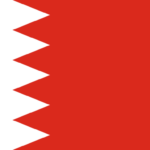- Services
- Case Studies
- Insight
- Customer Centre
Organizations have more information than ever before, and where technology was once held the promise of simplifying all of this, today the sheer variety of systems and software platforms can feel like a challenge in of itself.
The Association for Intelligent Information Management, for example, published a survey back in 2023 showing that the average organization uses five different Information Management (IM) systems. From just three in 2013.
How did complexity on this scale even emerge?
In most companies, different departments pick different tools: Marketing might pick a campaign platform, Finance chooses an invoicing app, and HR sets up an applicant tracking system. Each solution meets those needs, but rarely connects with one another. Accretion over time means within 10 years you could be dealing with two dozen different IM systems. In the UAE, this problem is particularly common in fast-growing sectors such as real estate, financial services, and professional services, where different teams or offices often adopt platforms independently.

- Of clouds, SaaS and on-demand software
Cloud-based apps lowered the barrier to entry for many services. People can now subscribe to software quickly, without much oversight. While this approach sparks innovation, it also encourages uncoordinated adoption. Multiple apps might overlap or store data in different corners. By the time your leadership notices, your staff are already using these systems at scale, and the pain point of telling them get off it is seemingly worse than just allowing it to continue.
In the UAE, the widespread adoption of cloud and SaaS tools across both private and government sectors can exacerbate silos and make IT oversight more complex.
- Shadow IT
You might not be immediately familiar with the term, but you’re certainly familiar with what it refers to.
Shadow IT is when employees use unapproved tools to get work done (think employees using disallowed generative AI platforms for a more recent and topical example, although it can be anything). Employees might, for example, store files on a personal cloud drive or chat through an unsanctioned platform. According to IBM’s Cost of a Data Breach report 2024, one in three global data breaches involve shadow IT, and UAE with rapidly digitalizing, teams face heightened exposure.
- The stickiness of legacy systems
This is probably one of the most common problems we discover in working with organizations: Many still rely on older software because it supports vital operations. Replacing it seems risky or expensive. Meanwhile, new tools keep arriving. The result is a blend of old and new, stitched together by manual workarounds or custom code. These older platforms can be tough to update or link to modern services, which leads to even more fragmentation.
In the UAE, this is especially evident in sectors such as banking, healthcare, and government services, where legacy systems remain mission-critical but increasingly hard to scale or integrate.
- Mergers, acquisitions and rapid growth
Two companies = Two sets of tools, and while the solution (pick a best-in-class for each category) might seem simple, if leaders do not integrate them carefully, complexity doubles. A fast-growing business might also adopt new offices or product lines, each with its own apps, further increasing overlap and confusion.

In the UAE, cross-border expansions and rapid growth in sectors like logistics and tech can multiply this complexity quickly.
The U.S. based Data Warehousing Institute (TDWI) underscores the risk of not giving these seemingly “minor” problems sufficient resources in the event of a merger. They do, in fact, require significant IT resource to ensure complexity is cut down to size.
- Remote and hybrid: A new normal (and challenge)
Recent shifts to remote or hybrid work have inspired teams to pick different communication and file-sharing apps. While these tools help keep people connected, they also increase the total number of systems in use.
Much like the driver of regulatory pressures (outlined below), remote work also leads to security anxiety among IT professionals, encouraging new systems, or the extension of legacy systems to new remits. These risks are of course, entirely legitimate as the Financial Times has covered before, but they can also create more problems than they solve.
- Regulatory pressures are getting tighter
Rules like GDPR and HIPAA demand strong data oversight. A scattered IT environment makes it hard to locate and protect sensitive information. It also complicates compliance audits or data requests. GDPR and GDPR-like laws (which are now commonplace all over the world, including many U.S. states) have extremely severe penalties for improper handling of data/information (in Europe it’s as high as 5% of top-line revenue for example).
In the UAE, the Federal Decree Law No. 45 of 2021 on the Protection of Personal Data (PDPL) imposes strict data management and privacy obligations, increasing the stakes of complex and fragmented IM systems
This affects people, too
Employees often waste hours searching for documents or juggling too many logins. According to one U.K. based study, employees waste 360 hours a year, and approximately 25% of their salaries on searching for relevant information.
Naturally, they may feel overwhelmed or unappreciated because the company is not fixing the root causes of their daily hassles. This turnover can strain teams already dealing with a complex technology environment. IT Pro, an online publication, rather aptly described this as a sort of “digital hide and seek” with information.
Looking ahead
There’s hope too though. The work of identifying overlaps, removing duplicates, and creating more unified processes might sound onerous, but there are comparably simple ways of going about this. Our upcoming guide will explore practical ways to reduce complexity in information management.
We will cover how to evaluate your existing tools, build more connected solutions, and support a smoother, more efficient environment. Stay tuned for insights that can help you bring order to your organization’s data, save time and money, and give your teams the space to do their best work.
Ready to simplify your information systems? Contact Crown Information Management UAE today for a free consultation, or call us on +971 800 27696.
 Bahrain
Bahrain  Cambodia
Cambodia 